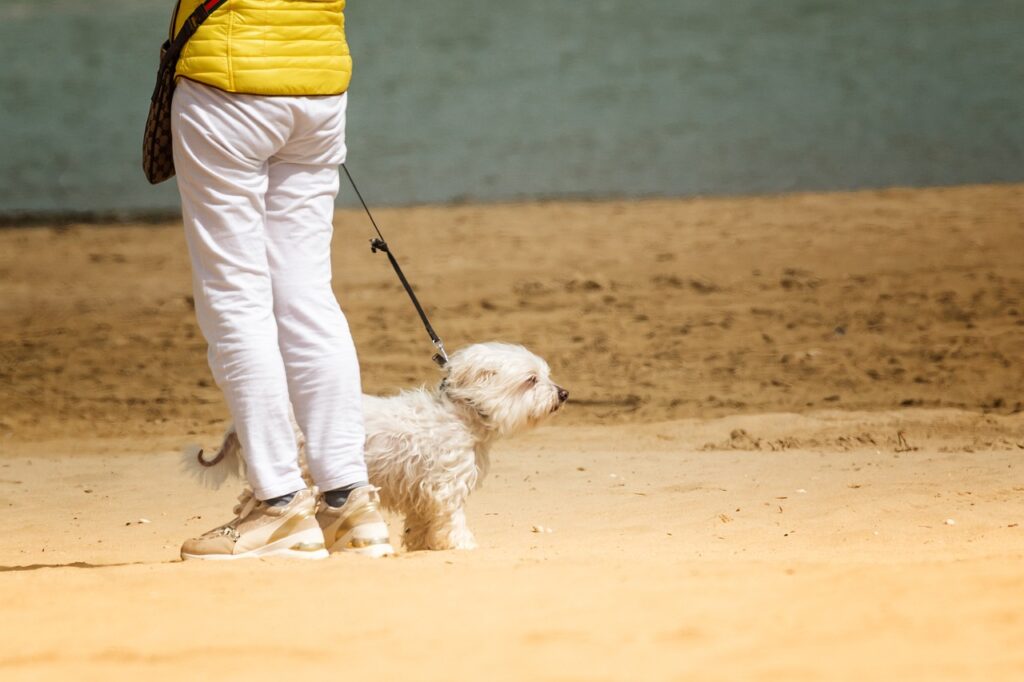
1. Introduction
Ensuring that your dog receives regular exercise is crucial for maintaining their physical and mental health. Daily walks provide much-needed physical activity, mental stimulation, and an opportunity for social interaction. However, busy schedules can make it challenging for many pet owners to consistently meet their dogs’ exercise needs. This is where a professional dog walker can be an invaluable asset. In this guide, we’ll explore the benefits of hiring a dog walker, what to look for in a professional, how to find the right one, and other essential considerations.
2. Why Hire a Dog Walker?
Health Benefits for Dogs
Regular walks help prevent obesity, improve cardiovascular health, and strengthen muscles and joints. They also provide mental stimulation by exposing dogs to different environments, smells, and sounds, which is crucial for their overall well-being.
Convenience for Busy Pet Owners
For many pet owners, balancing work, family, and social commitments can make it difficult to provide their dogs with the exercise they need. A dog walker ensures that your pet gets regular, scheduled exercise, regardless of your availability.
Socialization Opportunities for Your Dog
Interacting with other dogs and people during walks helps improve your dog’s social skills. This can lead to better behavior and a more well-adjusted pet.
Professional Care and Reliability
Professional dog walkers are trained to handle dogs of various sizes and temperaments. They are equipped to manage any unexpected situations, such as injuries or aggressive behavior, ensuring your pet is in safe hands.
3. What to Look for in a Dog Walker
Experience and Qualifications
Look for a dog walker with experience and relevant training. This could include certifications from pet care organizations or courses in animal behavior and first aid.
References and Reviews
Ask for references and read online reviews to gauge the quality of service provided. Positive testimonials from other pet owners can give you confidence in your choice.
Bonding and Insurance
Ensure that the dog walker is bonded and insured. This protects you and your pet in case of accidents or damage during the walk.
Compatibility with Your Dog’s Needs and Personality
Every dog is unique. Find a walker who understands your dog’s specific needs, whether it’s a preference for solo walks, special medical conditions, or a particular walking pace.
Availability and Flexibility
Choose a walker whose schedule aligns with your needs. Flexibility is also important in case you need to adjust the walking schedule due to changes in your routine.
4. How to Find a Dog Walker
Local Pet Care Directories and Websites
Websites dedicated to pet services often have listings of local dog walkers. These directories provide detailed profiles, including experience, services offered, and customer reviews.
Recommendations from Friends, Family, or Your Vet
Personal recommendations are invaluable. Ask friends, family, or your veterinarian for trusted dog walkers they have used and recommend.
Online Platforms and Apps for Pet Services
Several apps and websites connect pet owners with professional dog walkers. Platforms like Rover, Wag!, and Care.com offer profiles, reviews, and booking options.
Community Bulletin Boards and Social Media Groups
Local community centers, pet stores, and online community groups can be excellent resources for finding reputable dog walkers.
5. Questions to Ask Potential Dog Walkers
Their Experience and Training
Inquire about their background, how long they’ve been walking dogs, and any specific training they have received.
Handling of Emergencies or Accidents
Ask about their procedures for dealing with emergencies, such as a dog getting injured or becoming ill during a walk.
Types of Walks and Routes They Prefer
Understanding their preferred walking routes and styles (e.g., park walks, neighborhood strolls) can help ensure they align with your dog’s preferences.
Group Walks vs. Solo Walks
Determine whether they offer solo walks, group walks, or both, and choose based on what suits your dog best.
Policies on Cancellations and Refunds
Clarify their policies regarding cancellations, rescheduling, and refunds to avoid any misunderstandings later on.
6. Preparing Your Dog for a Walker
Introduction Process for Your Dog and the Walker
Arrange a meet-and-greet session so your dog can get acquainted with the walker. This helps both the walker and your dog feel comfortable with each other.
Providing Clear Instructions on Your Dog’s Needs and Routines
Give the walker detailed information about your dog’s habits, likes, dislikes, medical conditions, and any specific instructions for the walk.
Ensuring Your Dog is Comfortable with the Walker
Monitor your dog’s behavior during the initial walks. Signs of happiness and excitement indicate a good match.
Emergency Contacts and Medical Information
Provide the walker with emergency contact numbers and your dog’s veterinary details in case of an emergency.
7. Red Flags to Watch Out For
Unprofessional Behavior or Lack of Communication
A reliable dog walker should communicate effectively and professionally. Avoid those who are difficult to reach or unresponsive.
Signs of Stress or Fear in Your Dog
If your dog shows signs of fear or anxiety around the walker, it may indicate a poor match.
Poor Time Management or Frequent Cancellations
Consistent lateness or frequent cancellations can disrupt your dog’s routine and indicate unreliability.
Neglect of Your Dog’s Safety and Well-Being
Ensure the walker prioritizes your dog’s safety, such as avoiding dangerous areas and providing water during walks.
8. Cost of Hiring a Dog Walker
Average Pricing Ranges
Dog walking rates can vary widely depending on location, experience, and services offered. On average, you might expect to pay between $15 to $30 per walk.
Factors that Influence Cost
Factors like the length of the walk, whether it’s a solo or group walk, and the walker’s experience can all impact the cost.
Comparing Rates of Different Walkers or Services
Get quotes from multiple walkers to compare rates and services. Ensure you are getting value for your money.
Budgeting for Regular Dog Walking Services
Incorporate the cost of dog walking into your monthly budget to ensure you can consistently afford the service.
9. Alternatives to Hiring a Dog Walker
Doggy Daycares
Doggy daycares provide a structured environment where dogs can play and interact with other dogs under supervision.
Dog-Walking Co-ops with Neighbors or Friends
Form a co-op with neighbors or friends where you take turns walking each other’s dogs. This can be a cost-effective solution.
Self-Service Dog Parks
Self-service dog parks allow your dog to exercise and socialize with minimal supervision required.
Automated Pet Care Gadgets
Devices like automatic ball throwers can help keep your dog entertained and active when you’re not available.
10. Conclusion
Hiring a dog walker can significantly enhance your dog’s quality of life and provide peace of mind for you. By considering the factors outlined in this guide, you can find a trustworthy and reliable walker who meets your dog’s needs. Regular exercise, socialization, and professional care will ensure your dog remains happy, healthy, and well-adjusted.
11. Additional Resources
Links to Reputable Dog-Walking Services and Platforms
Articles and Books on Dog Care and Walking
- “The Dog Walker’s Guide” by David Sands
- “How to Have a Happy Dog” by Sophie Collins
Contact Information for Local Pet Care Professionals
- Local veterinarians
- Pet grooming salons
- Community pet care groups
By following this guide, you can make an informed decision that ensures your dog enjoys regular, safe, and enjoyable walks.

